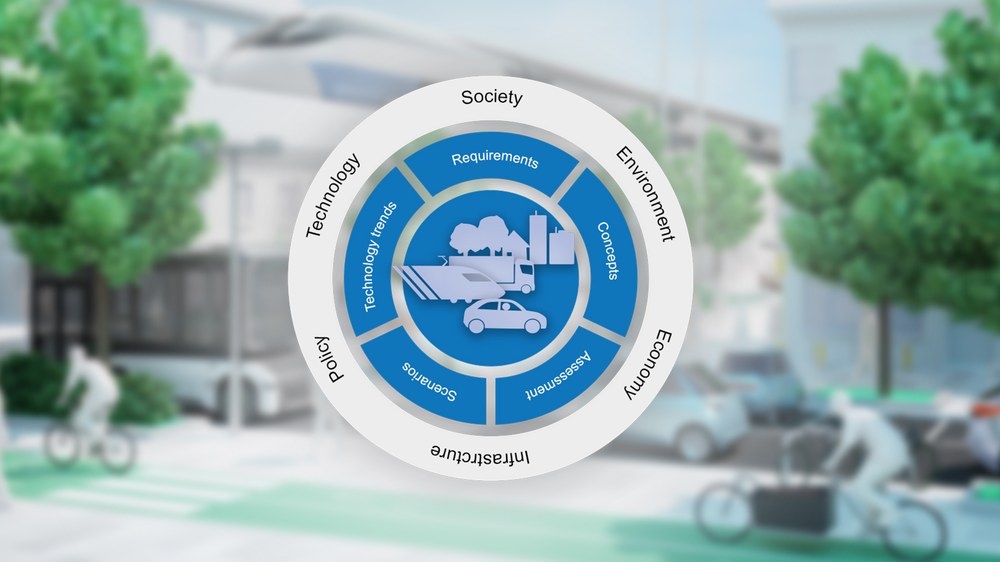Vehicle Systems and Technology Assessment

Which technologies will help us achieve greater sustainability?
Which technologies efficiently reduce greenhouse gas emissions in transportation? What do vehicles in sustainable and automated mobility systems look like? Which drive systems will be used in the rail vehicles of tomorrow? Climate change is forcing us to transform the vehicle sector. Technological advances open up new opportunities, but also bring challenges. Decisions are needed - but which development path is the most advantageous? Evaluating and using new technologies correctly is the key to the transformation towards sustainable mobility of the future. This is what we are working on in the Vehicle Systems and Technology Assessment department.
We are facing enormous challenges: Climate change and the finite nature of resources make it imperative to transform the vehicle sector. Challenges such as decarbonisation can no longer be postponed. At the same time, advances in electrification, digitalisation and new forms of drive are opening up completely new possibilities and opportunities for the economy, but are themselves associated with challenges. Against this background, a well-founded and differentiated assessment of new and old technologies is the basis for the development of new vehicle technologies. This is how we are shaping the transformation towards sustainable mobility of the future.
Our main areas of research
- Which technologies reduce vehicle emissions most efficiently? We evaluate vehicle and drive technologies in terms of energy, emissions and costs.
- How are vehicle technologies and concepts developing? Our databases and technology roadmaps provide an overview of international trends in automation and drive systems.
- What market shares can new technologies achieve? We have simulation models that calculate a market ramp-up for cars and commercial vehicles.
- Battery or hydrogen drives for rail vehicles? We use digital route and timetable data for the energy simulation of drive concepts. We use our component and system expertise to compare drive options.
- What influences the market entry of new vehicle concepts? We have experience with real-world laboratories, with citizens, companies and many stakeholders.
- How are value creation structures and supply chains changing? Our analyses show how these can be made resilient and future-proof.
Technology assessment as a transdisciplinary interface
We examine vehicle technology fields in a targeted manner: from alternative drives and energy storage systems to new types of fuels, materials, automation and digitalisation technologies. Part of the evaluation of technologies is the creation and analysis of scenarios. A central objective here is to map the competitive situation of vehicle, drive and fuel technologies in the new vehicle market against the background of different framework conditions and thus identify possible development and diffusion paths into the future. We understand this competition for customer and environmental benefits in a systemic, transdisciplinary and global context of technology, science, economy, ecology and society - and form the interface to society as the antithesis to technology.
Our expertise
With our system analyses, requirements analyses, technology assessments, scenario analyses and life cycle assessments, we make a contribution to scientifically sound decisions in commercial enterprises and politics. For a sustainable mobility of the future.
Interested? Get in touch now
You are interested in the latest developments in vehicle systems and technology assessment? Then contact us.
